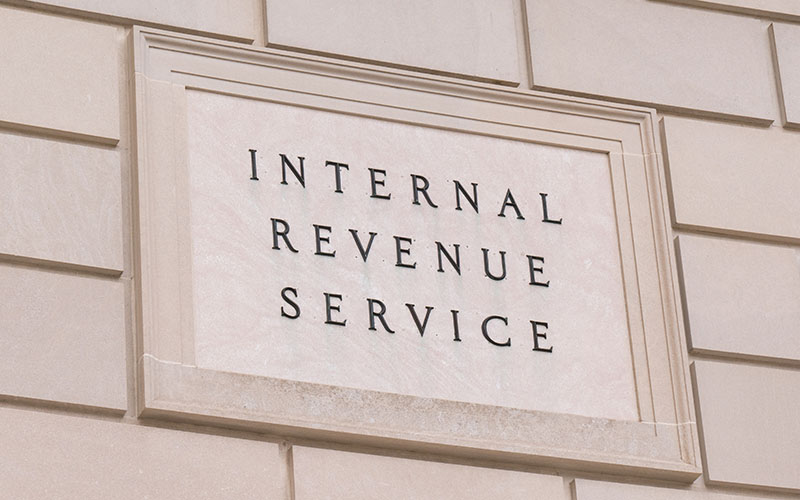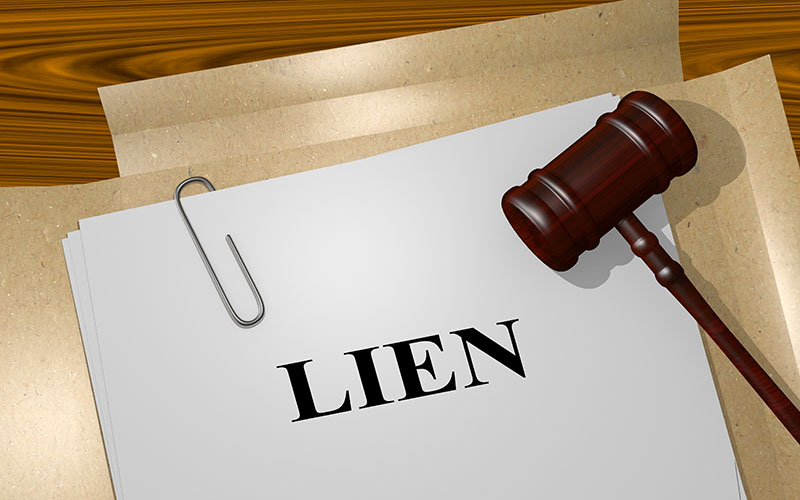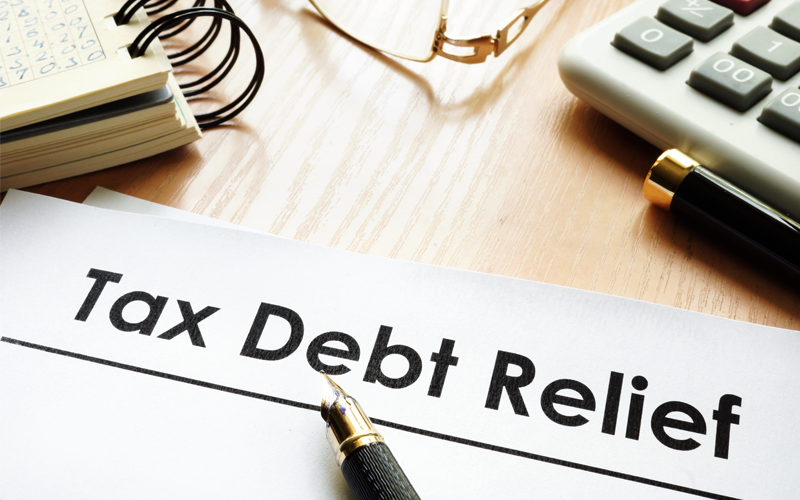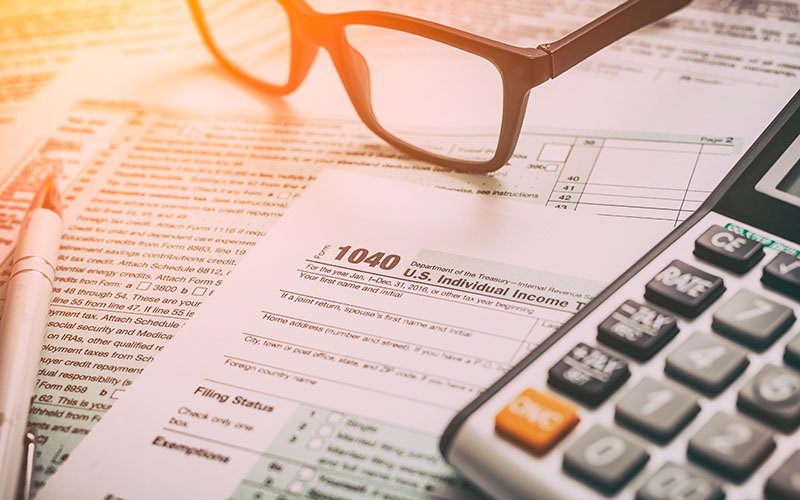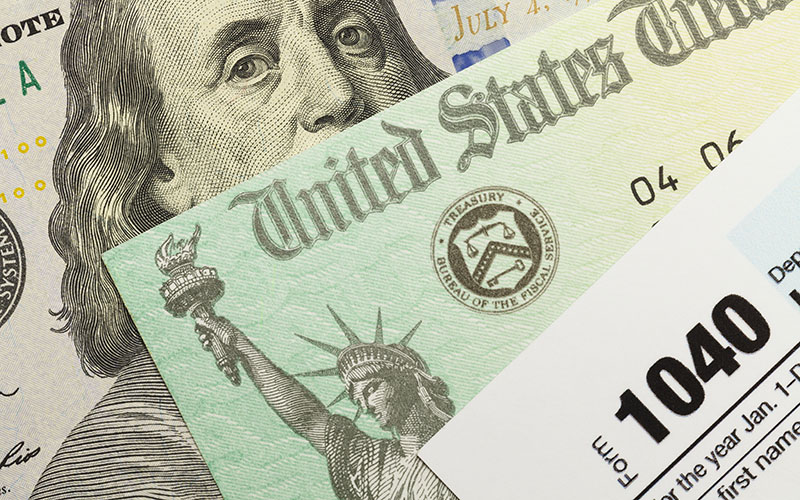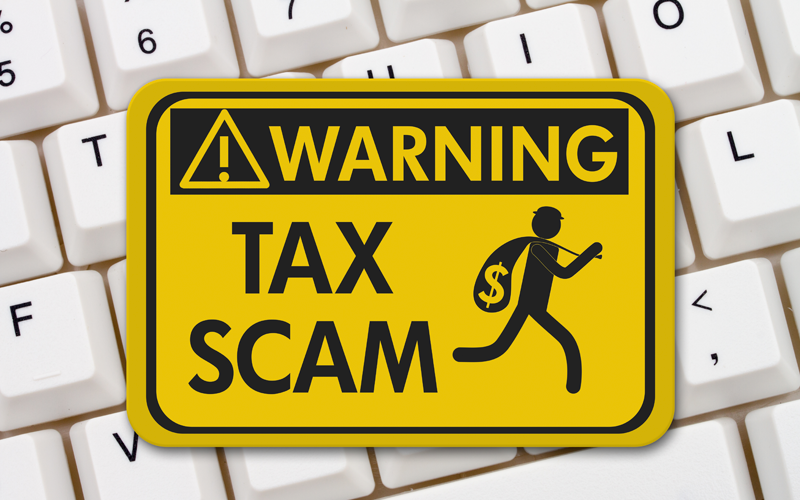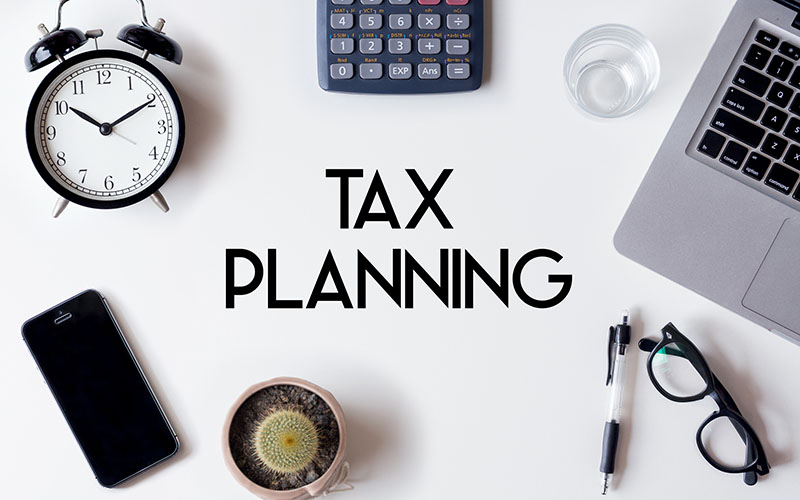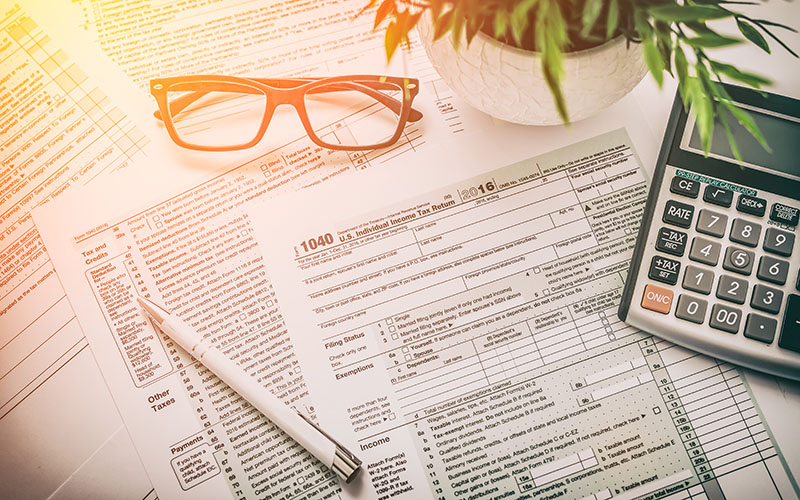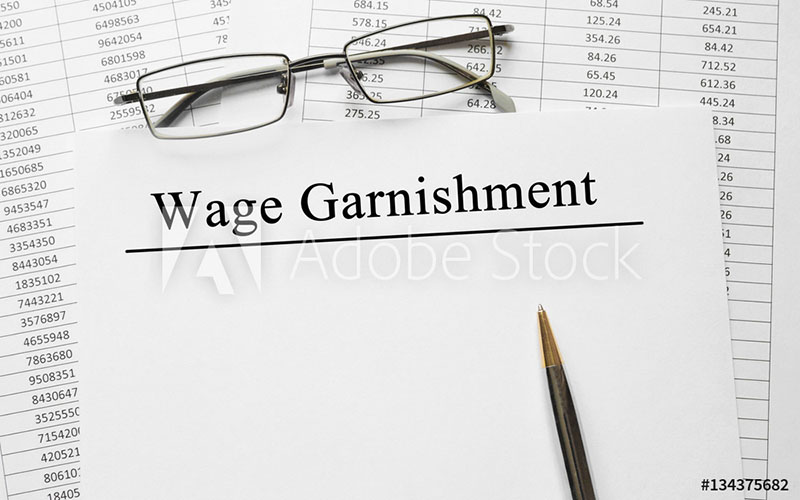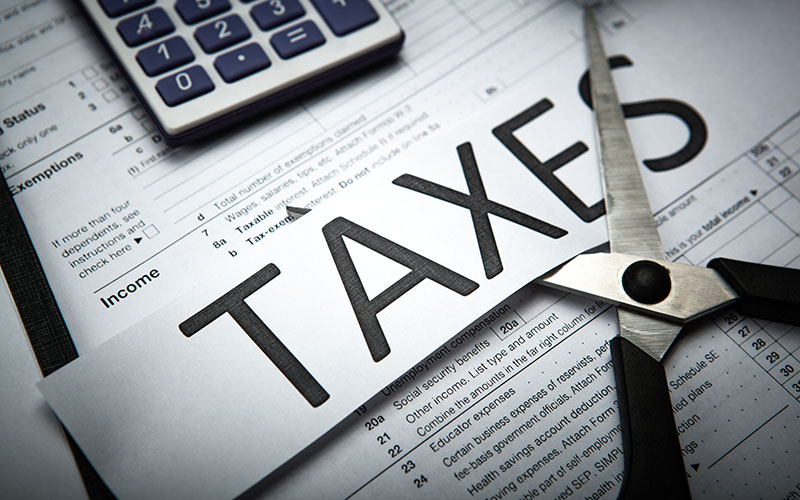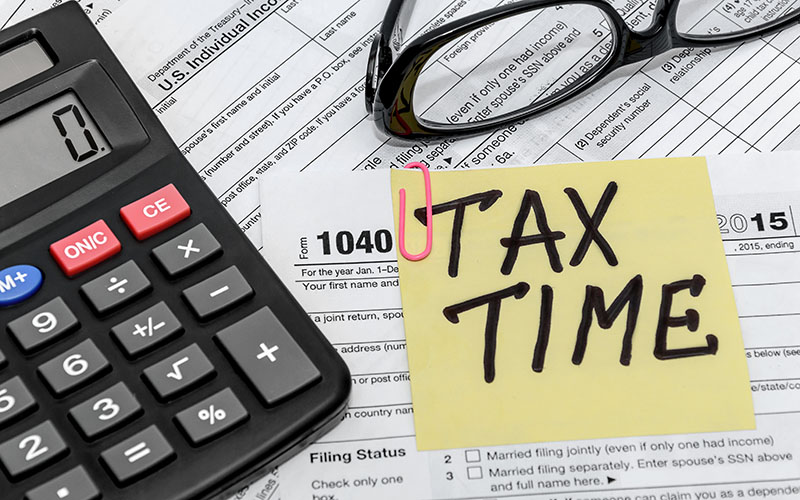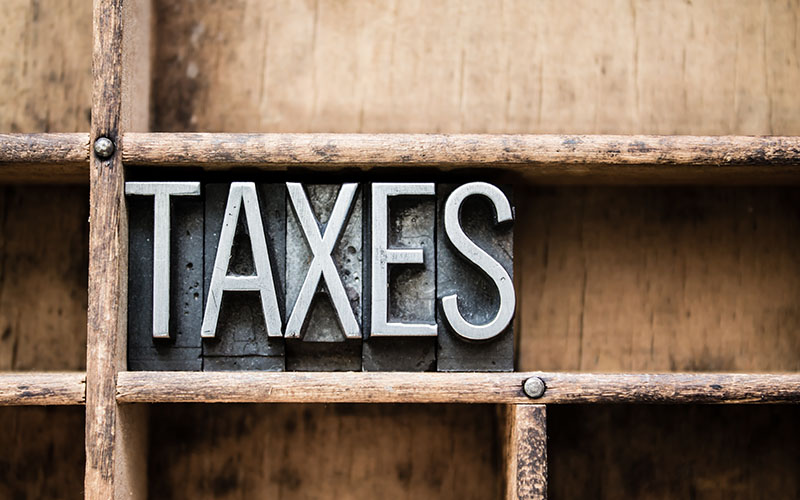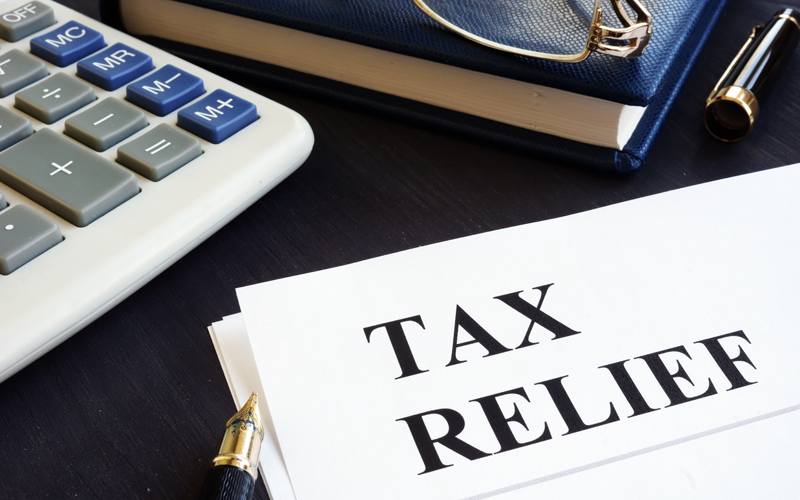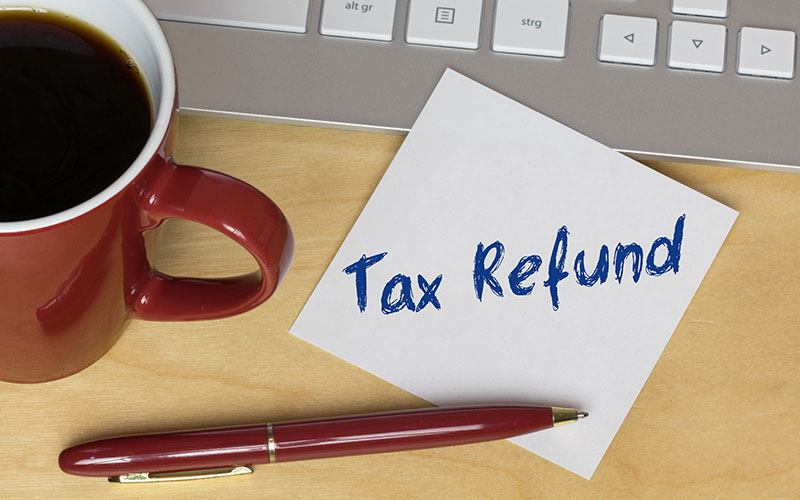What Happens If I Pay My Taxes Late?
Key Takeaways
- Missing the April 15 deadline results in interest and late-payment penalties, which can grow to 25% of your total tax bill
- Unpaid taxes can lead to liens, levies, wage garnishments, and asset seizures — including freezing bank accounts or intercepting tax refunds
- Tax debt can damage your credit score, affect loan eligibility, and even hurt your chances of employment
- Solutions include paying in full, setting up IRS payment plans, requesting Offers in Compromise, or working with tax relief services
- Filing an extension only delays your paperwork, not your payment — taxes must still be paid by April 15 to avoid penalties

No one likes paying taxes. Giving up your hard-earned money at the end of the year, shortly after the expensive holiday season, isn’t anyone’s idea of a good time.
However, all income-earning Americans are required by law to file a tax return each year and, if necessary, pay any taxes that are owed to the IRS.
If the amount you owe comes as a shock to you, and it can for many taxpayers after large tax policy shifts, or if you have just procrastinated in paying your taxes, you may wonder what happens next.
Here’s what you need to know about all the consequences of paying your taxes late, and how to fix your unpaid tax problems.

Why Do I Need To Pay My Taxes On Time?
Simply put, paying your taxes by the due date (April 15) is the law unless you have filed for an extension from the Internal Revenue Service.
If you don’t pay your taxes on time, you immediately begin incurring penalties and fees. Depending on how late you are with paying your taxes, and whether or not you filed your taxes on time, those penalties and fees can stack up quickly.
Not paying your taxes can also cause you to forfeit future tax refunds you might receive in order to pay back any owed taxes. And even if you pay your taxes later, not paying any remaining fees from your late filing can cause the IRS to garnish some of your future refunds.
What Are The Penalties For Not Paying Taxes On Time?

When you don’t pay your taxes by the due date, you can be subject to a wide variety of penalties and fines, from jail time to not being able to get a loan.
These penalties begin to kick in as soon as you're past the due date, but get more severe the longer you let your bill linger.
Interest & Fees
Any amount of your tax bill that’s left unpaid past April 15 is subject to interest fees, typically around 6%.
The IRS also adds on late-payment penalties of 0.5% of your total outstanding debt per month, with a cap of 25% of your tax bill.
Notices & Collections
You may begin receiving notices from the IRS seeking to collect on your unpaid debt, and you may receive calls from collection agencies.
These phone calls and notices can be embarrassing and annoying, especially if the collectors contact you while you’re at work.
Liens & Levies
If your bill remains unpaid after a few months, you could find yourself hit with an IRS tax lien or levy.
Tax liens are legal claims against property or financial assets that you may have or are owed. The IRS can seize these assets in order to pay your debt. When these assets are seized, it’s called a levy.
Some common types of tax liens and levies include:
- Future tax refunds
- Bank levies, which freeze your current financial accounts and take any money in them to pay your debt
- Wage garnishment, which takes up to 25% of your net paychecks to fulfill your obligation
- Asset seizure and sale, such as a vehicle or real estate property
In addition, if you sell an asset, such as a car or a piece of real estate, the IRS can lay claim to some or all of the proceeds from that sale to pay your back taxes.
Credit Reports
Your unpaid tax debt also goes on your credit report, as do any liens that have been taken out against you to pay back your debt. This can cause you to miss out on loans for houses, cars, or your business, as well as impact your ability to get new lines of credit.
Tax debt can even affect your ability to get a new job, depending on the type of job you’ve applied for and whether or not the employer pulls your credit report.
Other Penalties
If you let your tax debt go long enough without attempting to address payment, the State Department can refuse to issue you a new passport or, in some cases, may even revoke your current passport.
Unpaid taxes can land you in jail, but because it’s more difficult to get money from you if you aren’t working to earn it, the IRS typically pursues all available collection routes before pursuing jail time.
What’s The Difference Between Not Filing And Not Paying Taxes?
When you submit your tax return, regardless of whether you owe money to the IRS or the IRS owes you money, that’s filing your taxes.
Everyone who meets the income requirements set out by the IRS is required to file their tax returns by April 15. You can file for an extension allowing you more time to prepare your tax returns, but your extension application must be postmarked or e-filed by the end of the day April 17.
If your tax return shows that you underpaid taxes throughout the year and you owe the government money, you must also pay your taxes.
The due date for paying your taxes is April 15, just as it is with filing your taxes. However, there is no way to file for an extension to pay your taxes, so they must be paid by April 15.
If you are applying for an extension to file your taxes and anticipate that you will owe money, it’s best to make a payment with your application for an extension in order to avoid incurring penalties and late fees.
There are penalties and fees for missing both the filing and payment deadlines, and you can be charged fees for both unpaid and unfiled taxes in the same year.
How Can I Prevent Unpaid Taxes?
The easiest way to prevent unpaid taxes is to make sure you are paying your tax bill on time each year. That means getting started with your tax preparation early, early February if possible, so you can have enough time to gather the money you may owe.
Additionally, if you’d like to prevent having to pay large tax bills in the future, it’s advisable to meet with a tax professional each year to ensure that your deductions and withholdings are correctly figured.
By adjusting your withholdings, you may end up having more taxes taken out of your paychecks each month, but will owe less in a lump sum at the end of the year.
I Didn’t Pay My Taxes On Time. What Do I Do Now?
Not paying your taxes on time doesn’t mean all hope is lost, but your overdue bill will not just go away if you ignore it.
Here are some things you can do to take care of an unpaid tax bill:
Pay In Full
If you’re able to collect enough money to pay your overdue taxes in full - including any added fees or interest - write a check to the IRS as soon as possible.
It may be advisable to contact the IRS right before you plan to make a payment just to get your current balance so you don’t accidentally forget an added fee, leaving you with a balance.
Negotiate A Payment Plan
Sometimes, you are able to pay the full amount of your unpaid taxes but just can’t gather up the total bill right now.
In these cases, contact the IRS as soon as possible and negotiate a payment plan.
If your tax bill is small enough that you’ll be able to pay the bill in full within 120 days, or if you’re able to make large enough payments to take care of your bill within that time frame, you qualify for a short-term payment agreement. This agreement means you don’t incur any additional payment plan initiation fees, and you simply pay the IRS your agreed amount until your taxes are paid.
For larger bills or if you’re unable to take care of the total amount in under 120 days, you can enter into an installment agreement with the IRS.
These installment agreements do incur an origination fee, but as long as you make the payments on time the IRS doesn’t continue adding interest and fees.
Declare Bankruptcy
While this is an extreme measure, if your tax bill is very large and you’ve found yourself in other financial troubles, declaring bankruptcy can press pause on paying your overdue taxes.
By law, the IRS cannot pursue collecting on your tax debt if you’ve filed for Chapter 7 bankruptcy.
However, this is a tricky route because unpaid tax debts rarely are fully forgiven in bankruptcy court, so filing bankruptcy just gives you more time to collect the money to pay the debt instead of avoiding it altogether.
Low Realistic Collection Factor
If you meet certain criteria, you may be able to get your account flagged as having a low Realistic Collection Factor.
Having a low Realistic Collection Factor means you meet three conditions:
- You are low-income.
- You have no assets, such as bank accounts or real estate, that the IRS could seize to pay your debt.
- You have no way to make payments on the amount you owe the IRS.
Having your account labeled with a low Realistic Collection Factor doesn’t completely rid you of the debt, but the IRS usually will not pursue you to collect on your debt.
Non-Collectible Status
Like having a low Realistic Collection Factor, Non-Collectible Status means you are low enough income that you cannot reasonably pay your debt, and the IRS doesn’t hound you for payments.
If you get your account labeled Non-Collectible, the IRS gives you 10 years to increase your income and assets, allowing you to pay your debt. Once your account has been Non-Collectible for more than 10 years, the IRS cannot legally pursue collections on it.
Non-Collectible does not technically mean your debt is completely forgiven, but it gives you a large amount of time without letters and phone calls to gather the money to pay your debt.
Offers In Compromise
If you’re able to make a sizeable lump sum payment toward your debt, but you cannot pay in full, you may be able to get an Offer in Compromise.
Offers in Compromise mean you settle with the IRS to pay less than the full amount you owe, in exchange for a larger up-front payment than is required in an installment agreement.
While rare, Offers in Compromise are generally granted for low-income taxpayers or those with other major financial hardships that prevent them from paying the full amount.
Tax Lien Withdrawal
An official Tax Lien Withdrawal is like an auto-debit agreement with the IRS.
You agree to pay off the full amount owed, with money withdrawn from your checking or savings account on a regular basis. You also formally request that the IRS remove a tax lien from your account and off your credit report.
Working With A Professional Tax Relief Service
You can negotiate directly with the IRS regarding your unpaid tax debt, but many taxpayers leave the process to the professionals and hire tax relief services.
These services often are staffed with experienced professionals, including accountants and lawyers.
They look over your entire account, including any unfiled or unpaid tax debt. Once they have a clear picture of how much you owe, you are presented with options for taking care of your tax debt. These options can include installment agreements or Offers in Compromise.
Your tax relief representative and their colleagues are the ones who negotiate and deal with the IRS, so you don’t have the stress and confusion of working with the agency. They also guide you through collecting the necessary information, choosing the best option for your situation, and finalizing your agreement with the IRS.
Tax relief services do charge to help with your case, but many taxpayers find them invaluable and find the peace of mind well worth the cost.
Find Help For Unpaid Taxes
Having unpaid taxes can cause you a great amount of stress. You hate when the phone rings, thinking it may be another collection call, and you’re always worried that your assets could be seized to cover your debt.
With the help of a skilled tax debt relief professional, you can take care of your unpaid taxes and get back to life as normal.
At the Credit Review, we’ve collected all the highest-rated tax relief professionals, as well as numerous other financial professionals, so you can find the firm that’s right for you. Learn more about your tax relief options here.
Will I Go To Jail For Not Paying My Taxes?
While not paying your taxes on time is technically a misdemeanor and can be punishable by up to one year in prison or a $25,000 fine for each delinquent year, the IRS is unlikely to put you in jail for unpaid taxes.
Unless you’ve committed another crime in addition to your unpaid taxes, such as tax evasion, the IRS feels it’s more worthwhile to have you out of jail and working to repay your taxes than sitting in a cell.
Do Unpaid Taxes Expire?
Yes. The IRS has 10 years to collect on your back taxes.
If, after 10 years, you still haven’t paid in full, the IRS is legally barred from pursuing further collection action against you.
How Do I Find Out How Much I Owe The IRS?
There are several ways to find out how much you owe:
- Use the IRS’s online tool to look up your current bill
- Call the IRS for an updated amount
- Request your tax return transcripts via mail or online application
- Look at your most recent statement from the IRS
- Contact a tax relief firm to look up your balance for you
Can I Receive A Refund If I Am Currently Paying On A Payment Plan Or Installment Agreement For A Prior Tax Year?
No. One of the terms of your installment agreement with the IRS is that the IRS will automatically apply any refunds due to you against your outstanding balance.
The refund offset doesn’t impact the amount of your installment agreement, so continue making your payments as agreed. If there’s any extra once your debt is paid in full, the IRS will refund you the overpaid amount.
Edited by:
Bryan Huynh
•
Product Tester & Writer

